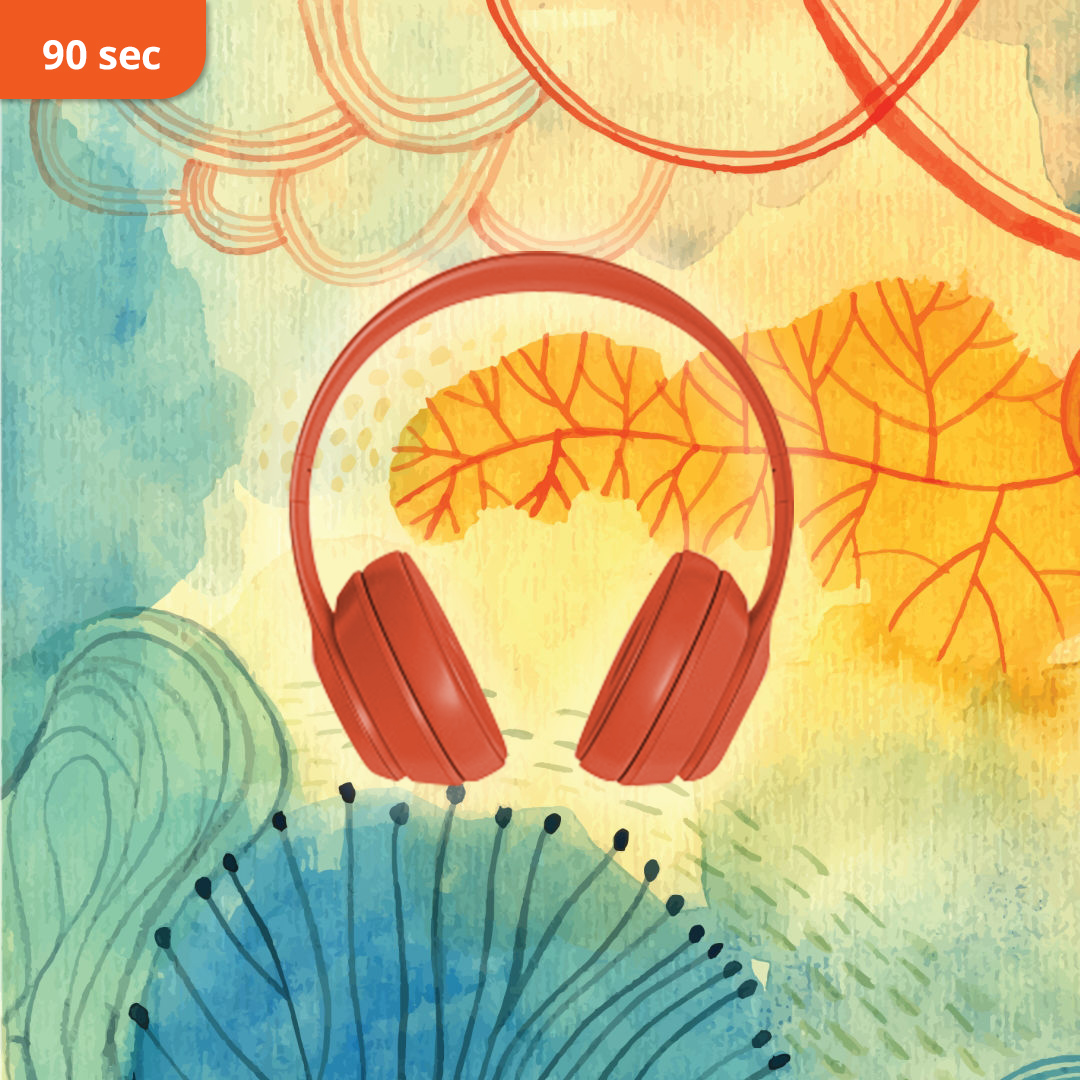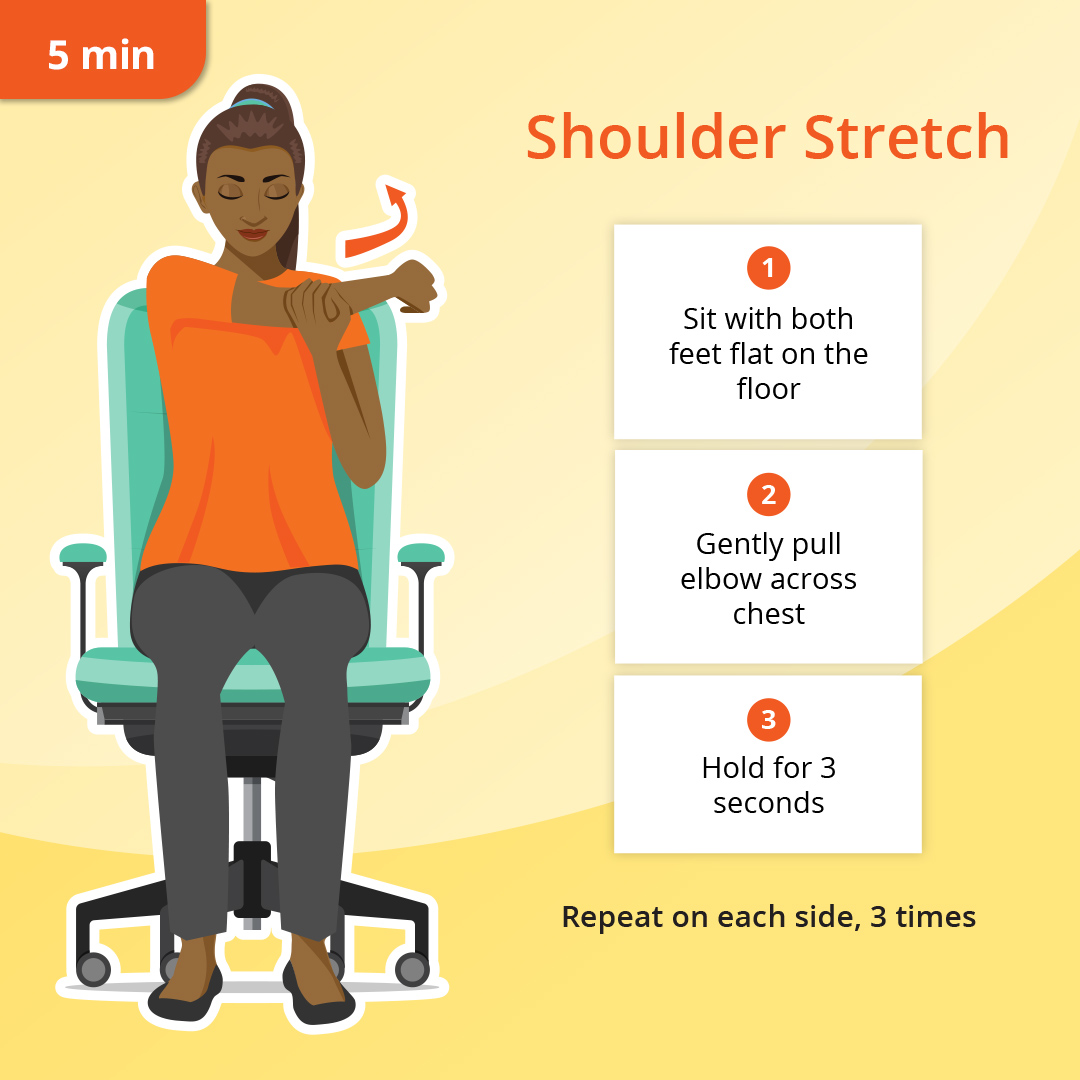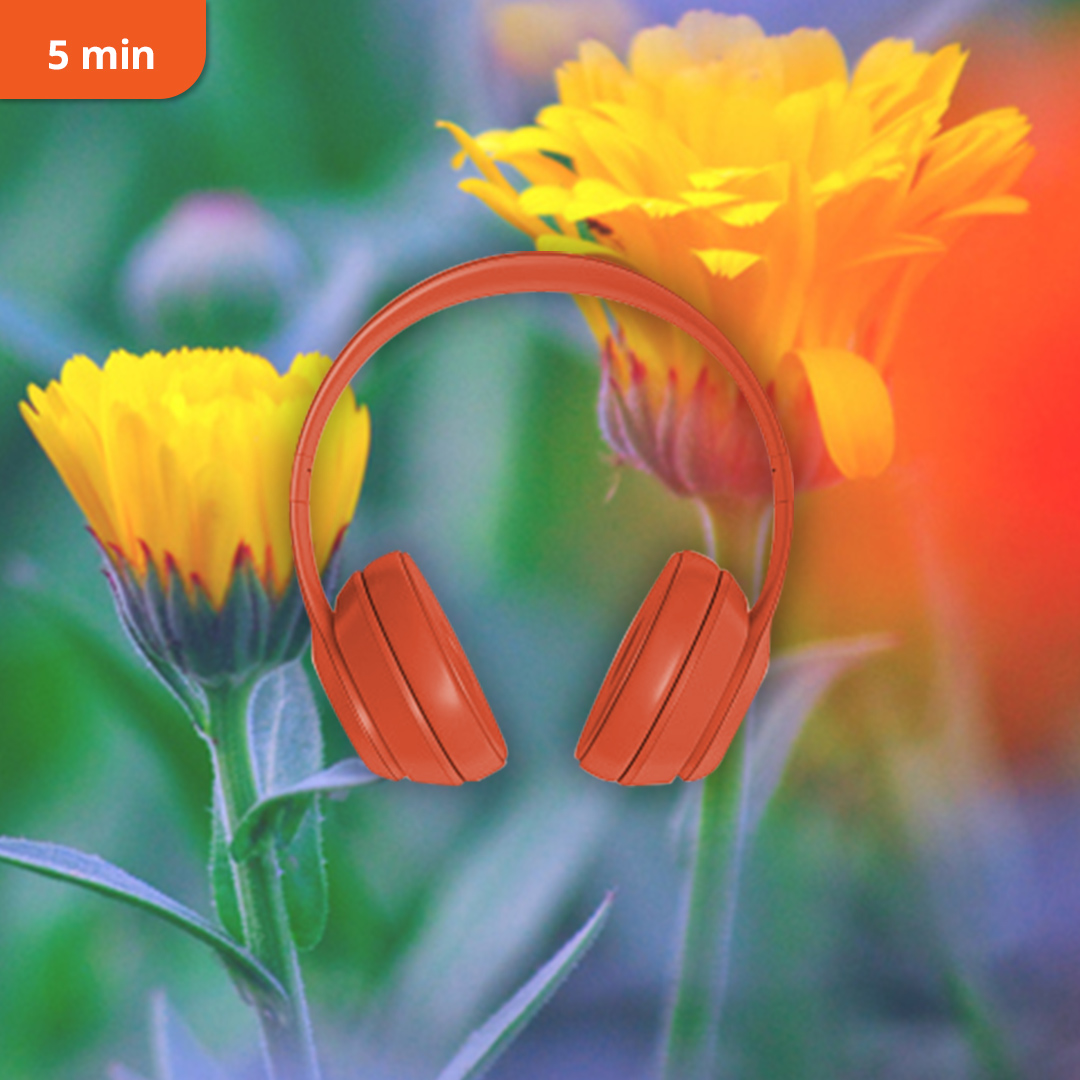Browse through stress-reducing activities and find what works best for you.

00:00 / 02:07


00:00 / 05:10

00:00 / 00:45



00:00 / 00:41
Meditation: Body Scan
Feeling tense? Learn to relax and release tightness by bringing attention to your body. It only takes a few minutes, and it can be performed while lying down, sitting, or in other postures. If you’re new to this, start with the audio, and then over time, you can practice it at your own pace for longer periods. Research suggests that people who practice the body scan for longer get more stress relief from it.
Stretch Out: Shoulder Stretch
You can use your body to help ease your mind. Stretching is a useful and safe activity that can help improve overall flexibility, coordination, balance, and posture. When done slowly, stretching can be an excellent relaxation method and stress reducer. The above seated stretch can be done anytime and anywhere. Dedicate 3 to 5 minutes in a quiet and comfortable place.
Guided Imagery: Imagine Calm
Are you feeling overwhelmed or flustered? Or maybe you feel like you’re in mental fog? Guided imagery is as simple as picturing something in your mind and letting it help you relieve tension. Did you know that your imagination and senses (taste, smell, touch, and hearing) can be powerful tools for helping you relax? Listen to this recording and try some guided imagery. Practice it whenever you like, picturing whatever makes you happy in your mind when you start to feel stressed.
Breathe Deeply
Need some clarity or peace of mind? Deep breathing has been shown to help people relax, reduce tension, and feel calm. Deep breathing, which is also called mindful breathing, is easy. You can do it anytime you need to take a break or you’re feeling stressed. Just slowly breathe in and out, and repeat.
Say Thank You
Need a boost of positivity? Research shows that expressing gratitude can improve your health and mood. Yes, it’s as simple as stopping to say thank you. It not only brings happiness to someone in your life, but it makes you feel good too. Write down what you’re thankful for, or type it out in a text or email. Send it, or better yet, deliver and read it in person. Make a habit of sending at least one thank you note a month. You may even want to consider writing one to yourself.
Use Happy Memories to Feel Good Now
Research shows that simply experiencing or recalling positive feelings can help reduce stress. Think about how you feel when a loved one or friend gives you a hug or compliment. It makes you feel good! In your head, try playing a slide show of pleasant memories to lift your mood and see if you crack a smile or laugh.
